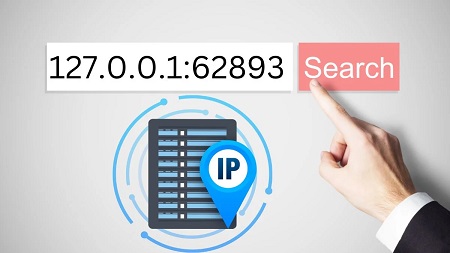
In the realm of computer networking and software development, the IP address 127.0.0.1 and port number 62893 may seem like technical jargon to many. However, they play a crucial role in the functioning of local servers and applications. This article explores what 127.0.0.1:62893 signifies, its uses, and why it’s important for developers and IT professionals.
What is 127.0.0.1?
The IP address 127.0.0.1 is known as the “loopback” address or “localhost” in networking terms. It is a special IP address used by a computer to refer to itself. When you use this address, any network traffic is routed back to the same device, allowing for local testing and troubleshooting without involving external networks.
Key Characteristics of 127.0.0.1:
- Local Communication: It facilitates communication between applications on the same machine. For example, a web server running on your computer can communicate with a web browser on the same machine using 127.0.0.1.
- Testing and Development: Developers use this address to test applications in a local environment before deploying them to a live server.
- Security: Since the traffic does not leave the machine, it provides a secure way to test and develop applications without exposing them to external threats.
What is Port 62893?
Port numbers are used to differentiate between various services and applications on a computer. They are part of the TCP/IP protocol suite and are essential for directing network traffic to the appropriate software.
Port 62893 is a dynamic or private port number. Unlike well-known ports (e.g., port 80 for HTTP), dynamic ports are often assigned by the operating system for temporary or ephemeral connections. This means:
- Dynamic Assignment: Port 62893 is not reserved for a specific service and can be used by various applications as needed. It is typically assigned for temporary connections during a session.
- Application-Specific: Developers and applications can use this port for testing or communication purposes. For example, a local development server might be configured to use port 62893 to avoid conflicts with other services.
Common Uses of 127.0.0.1:62893
- Local Development and Testing: Developers often configure their development environments to use specific IP addresses and ports. For instance, a web application might run on
http://127.0.0.1:62893during development, allowing developers to test features locally before deploying them to a production server. - Debugging: When troubleshooting network issues or debugging software, developers can use 127.0.0.1 and a specific port like 62893 to isolate problems and verify that their applications are functioning correctly in a controlled environment.
- Private Communication: Certain applications or services may use the combination of 127.0.0.1 and a dynamic port like 62893 for internal communication or inter-process communication (IPC) on the same machine.
How to Use 127.0.0.1:62893 Effectively

To make the most of 127.0.0.1:62893, follow these best practices:
- Configure Applications Properly: Ensure that your local applications or services are set to listen on the correct IP address and port. This prevents conflicts with other services and ensures smooth operation.
- Secure Your Development Environment: While 127.0.0.1 is inherently secure because it doesn’t expose traffic to external networks, be cautious about what services are running on dynamic ports. Avoid using these ports for sensitive data if possible.
- Monitor Port Usage: Regularly check which applications are using specific ports on your local machine. This can help identify potential conflicts and ensure that your development environment is running efficiently.
- Update Documentation: If you’re working in a team, document the ports and IP addresses used in your local development setup. This ensures consistency and helps others understand the configuration.
Conclusion
The combination of 127.0.0.1:62893 represents a powerful tool for developers and IT professionals, providing a means to test and develop applications in a secure, local environment. Understanding its role and proper usage can enhance your development workflow and troubleshooting capabilities. Whether you’re configuring a local server or debugging an application, leveraging 127.0.0.1 and dynamic ports like 62893 ensures that you can work efficiently and effectively within your development environment.
Keep visiting us.




